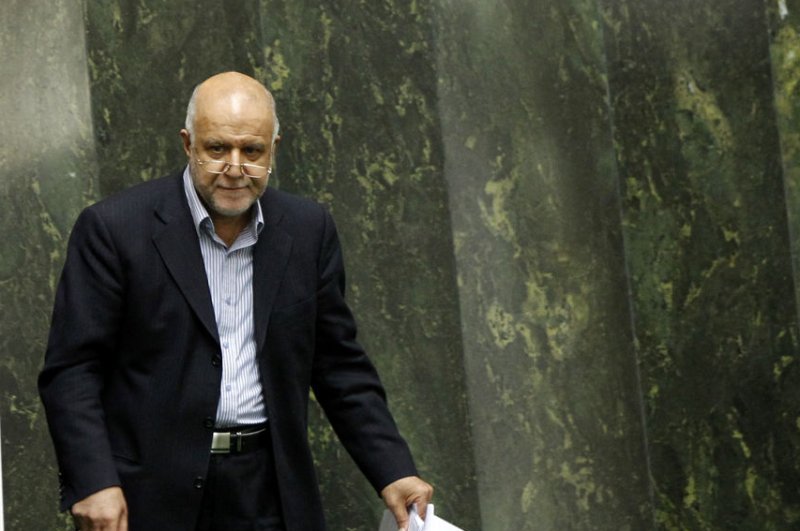Iran's oil minister, Bijan Zangeneh, said OPEC is wary of the rally in crude oil prices will overheat the market with U.S. shale. File photo by Maryam Rahmanian/UPI |
License Photo
Jan. 9 (UPI) -- Seasonal demand strains are propping up the price of crude, but OPEC is wary of anything much higher than $60 per barrel, Iran's oil minister said Thursday.
The price for Brent crude oil is up nearly 2 percent since the first trading day of 2018 and showing few signs of slowing. The rally continued early Tuesday with Brent, the global benchmark for the price of oil, at around $68 per barrel.
Iranian Oil Minister Bijan Zangeneh said the support for crude oil prices was in part because of the extended commitment by members of the Organization of Petroleum Exporting Countries to extend a production cut arrangement into a second year and because of winter demand strains.
The rally, however, may be stimulating U.S. shale oil developments, which could undermine OPEC's efforts at balancing an oversupplied market. An oversupplied market pushed oil prices below $30 per barrel in early 2016.
"Members of OPEC are not keen on increased Brent crude prices to above $60 per barrels because of shale oil," he was quoted by the semiofficial Fars News Agency as saying.
Federal U.S. estimates put the average total crude oil production for this year at 10 million barrels per day, an all-time record if forecasts prove accurate. Stephen Brennock, an analyst with London oil broker PVM, said Monday it would take "a brave man" to bet against U.S. shale this year.
The downturn in the global energy market, which bottomed out about two years ago, curbed exploration and production activity in the United States, though shale oil has proven to be more resistant than expected.
In October, OPEC economists said anything around $55 per barrel for 2018 could be the sweet spot for U.S. shale. Anything above that would encourage U.S. oil producers to drill more, while lower prices could curb their spending.
For OPEC, commodity pricing group S&P Global Platts said total production in December was up about 50,000 barrels per day from the previous month. Iran was among the contributors to the increase.
Zangeneh said late last year that most deals managed by OPEC had fallen short of design, adding there were no guarantees the production agreement would be enforced.















